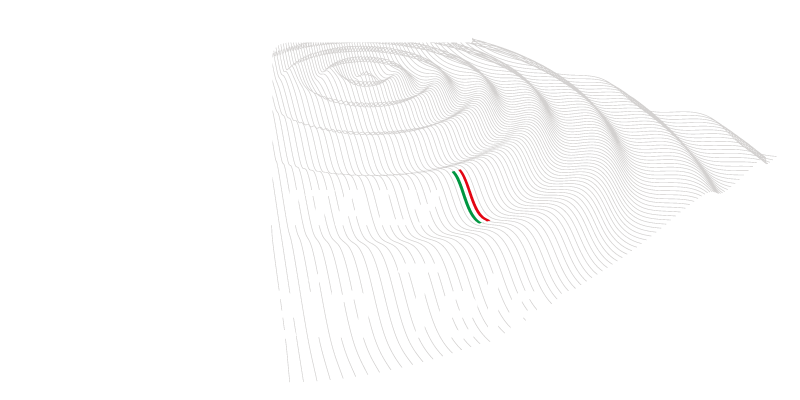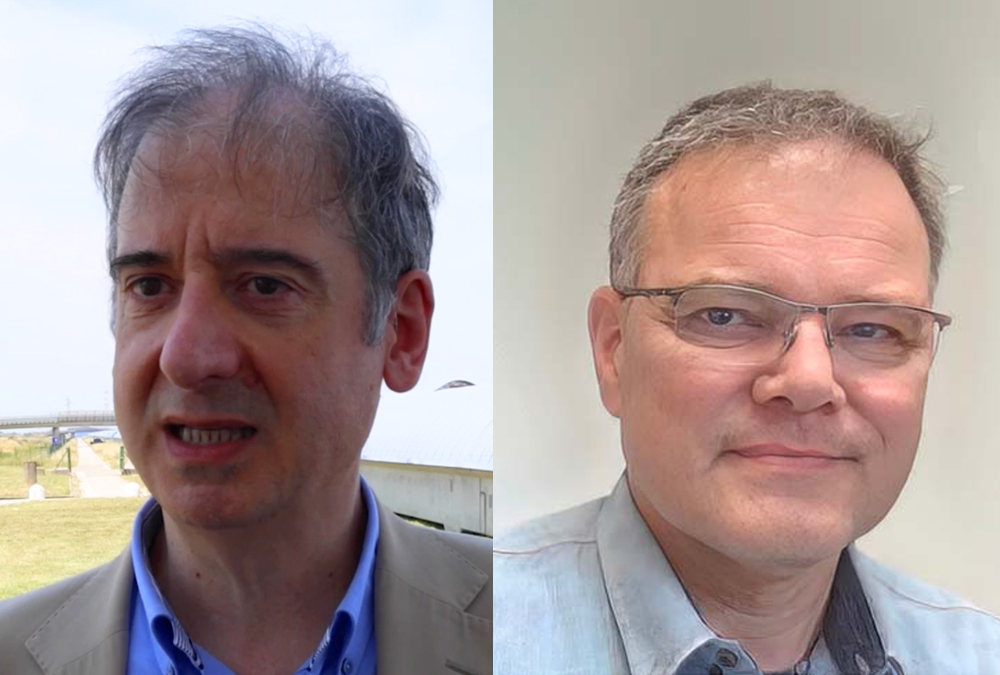Michele Punturo, a researcher at INFN Perugia division, and Harald Lück, a researcher at the Institute for Gravitational Physics of Leibniz University Hannover and the Max Planck Society, will serve as coordinator and vice-coordinator, respectively, of the Einstein Telescope (ET) Scientific Collaboration. The announcement was made on March 23 by the ET Scientific Collaboration, which brings together universities and research institutes involved in the design and construction of a third-generation European gravitational-wave observatory.
The two appointments confirm the choices made last June, when the ET scientific collaboration, at the same time as it was set up, entrusted the two researchers with the coordination of scientific activities. Among the main tasks that will see the two spokespersons engaged in the short term, there will be the organisation of the working groups that will be engaged in the research and development activities in the various areas of the project, from the study of enabling technologies, to the computational infrastructure, from observational science, to the characterisation of candidate sites to host the observatory.
“We are honoured to have been elected to lead the collaboration,” comment Michele Punturo and Harald Lück. “We thank all our colleagues for the confirmation of our appointments, and we believe that this is the evidence of the importance of the work done so far by the entire Einstein Telescope community. We will strengthen our commitment to realise Einstein Telescope, an important opportunity for the whole of Europe’.”
Michele Punturo is a research manager at the INFN National Institute for Nuclear Physics. He began his career at CERN, working on measurements dedicated to verifying CP symmetry violation. In 1994, he joined the Virgo collaboration, contributing to the construction of Europe’s first gravitational interferometer. In the following years, he held positions of responsibility and coordination of activities related to Virgo’s data collection and update campaigns. At the same time, at the European level, he was one of the first promoters of the initiatives aimed at the design and construction of a third-generation European gravitational interferometer, which later merged into the Einstein Telescope, in which he was coordinator of the committees and working groups responsible for drawing up the project and submitting the proposal for its realisation to the European Commission first and then to the European Forum for Research Infrastructures of Strategic Interest (ESFRI).
Harald Lück is a researcher at the Max Plank Planck Institute for Gravitational Physics in Hannover (Albert Einstein Institute). In the period 1993-1997, he contributed to the design, leading the construction and later the data taking activities, of the German gravitational interferometer GEO600, located near Hannover. Starting in 2004, together with Michele Punturo, he coordinated work on the development of the initial proposal for a third-generation gravitational observatory and the submission of the ET project to the European Commission in 2007. In the following years, he was co-responsible for the project’s activities and participated in the creation of the ET collaboration in 2021.

